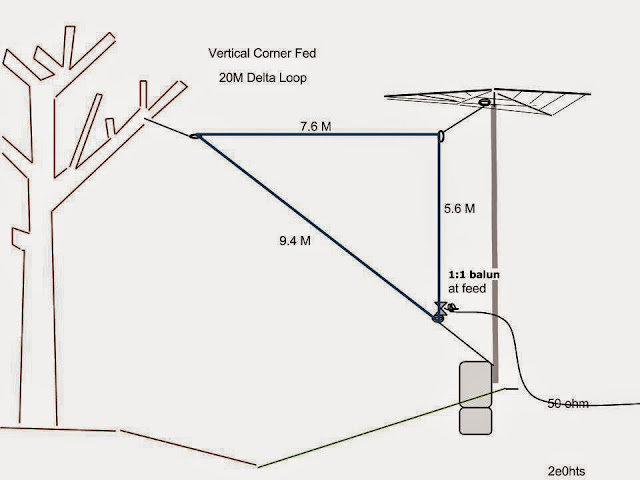Do You know What The Word HAM Means?
The word HAM is often used by many as a shortcut for amateur radio “HAM RADIO”. As a radio operators we call ourselves “HAM” or “HAMS”.
The actual meaning of HAM is taken from the three pioneers that helped to make it possible for us all to become “HAMS”.
The letter H stands for Hertz (Heinrich Hertz) who helped to develop the theory of electromagnetic waves.
The letter A stands for Armstrong (Edwin Howard Armstrong) who was successful in inventing FM (Frequency Modulation).
The letter M as you may have guessed already stands for Marconi (Gugliemo Marconi) who was the first to transmit signals across the Atlantic.
H = HERTZ
A = Armstrong
M = Marconi
The actual meaning of HAM is taken from the three pioneers that helped to make it possible for us all to become “HAMS”.
The letter H stands for Hertz (Heinrich Hertz) who helped to develop the theory of electromagnetic waves.
The letter A stands for Armstrong (Edwin Howard Armstrong) who was successful in inventing FM (Frequency Modulation).
The letter M as you may have guessed already stands for Marconi (Gugliemo Marconi) who was the first to transmit signals across the Atlantic.
H = HERTZ
A = Armstrong
M = Marconi








Comments
I have thought for long time HAM meaned what? HI. But the "HAM" is used very often and used all over the world. Off course, in Japanese, too.
Thank you for your very interesting comment about "HAM"! HI.
de Nash from Japan
Glad you liked it but not sure if it is 100% correct. hi
I liked it anyway!
Good DX
73 de Simon
I read few weeks ago about same topic article on Czech wikipeadia
English, more detailed text is available here
73! Tomas
Hope to hear you on the bands some day.
Many thanks for taking the time to post your comment on Ham Radio Blogspot.com it is apreaciated :-)
73 de 2e0hts Simon
Anyone reading this comment should follow the link posted by OK4BX to find more information about what the word 'Ham' stands for.
it looks like there is more to the meaning of the word 'Ham' after all! h.i Thanks to OK4BX Tomas we have some more reliable information to check out.
73 de 2e0hts
OK4BX Tomas-san and 2E0HTS Simon-san from Japan.
I,too. I have wondered about a word "HAM" for longtime. The history of these OM, I am very interesting in. I like it very much, too. Thank you, Tomas-san and Simon-san!!!
73 de JN4VWH from JAPAN
I found another explenation why we call yorself HAMs on arrl.org website. Sounds quite realistic to me as many abbrevetions were adapted from era of cable telegraph .. 73 de Tomas
http://www.google.com/buzz/108583383658958862611/GUTz5PcAYzz/But-Ham-Wheres-that-from-Ham-a-poor-operator-A
A= Amateur
M= Manifestation
A= Amateur
M= Manifestation
In fact is the Barking of a Dog, HAM HAM HAM , boy who know why they like to talk anything just to heat up the finals....
http://www.rfcafe.com/references/electrical/origin-of-ham.htm
Why radio amateurs are called "HAMS" (from Florida Skip Magazine - 1959)
Have you ever wondered why radio amateurs are called "HAMS?" Well, it goes like this: The word "HAM" as applied to 1908 was the station CALL of the first amateur wireless stations operated by some amateurs of the Harvard Radio Club. They were ALBERT S. HYMAN, BOB ALMY and POOGIE MURRAY.
At first they called their station "HYMAN-ALMY-MURRAY". Tapping out such a long name in code soon became tiresome and called for a revision. They changed it to "HY-AL-MU," using the first two letters of each of their names. Early in 1901 some confusion resulted between signals from amateur wireless station "HYALMU" and a Mexican ship named "HYALMO." They then decided to use only the first letter of each name, and the station CALL became "HAM."
In the early pioneer days of unregulated radio amateur operators picked their own frequency and call-letters. Then, as now, some amateurs had better signals than commercial stations. The resulting interference came to the attention of congressional committees in Washington and Congress gave much time to proposed legislation designed to critically limit amateur radio activity. In 1911 ALBERT HYMAN chose the controversial WIRELESS REGULATION BILL as the topic for his Thesis at Harvard. His instructor insisted that a copy be sent to Senator DAVID I. WALSH, a member of one of the committees hearing the Bill. The Senator was so impressed with the thesis is that he asked HYMAN to appear before the committee. ALBERT HYMAN took the stand and described how the little station was built and almost cried when he told the crowded committee room that if the BILL went through that they would have to close down the station because they could not afford the license fees and all the other requirements which the BILL imposed on amateur stations.
Congressional debate began on the WIRELESS REGULATION BILL and little station "HAM" became the symbol for all the little amateur stations in the country crying to be saved from the menace and greed of the big commercial stations who didn't want them around. The BILL finally got to the floor of Congress and every speaker talked about the "...poor little station HAM." That's how it all started. You will find the whole story in the Congressional Record.
Nation-wide publicity associated station ""HAM" with amateur radio operators. From that day to this, and probably until the end of time in radio an amateur is a "HAM." - Sreekumar P.